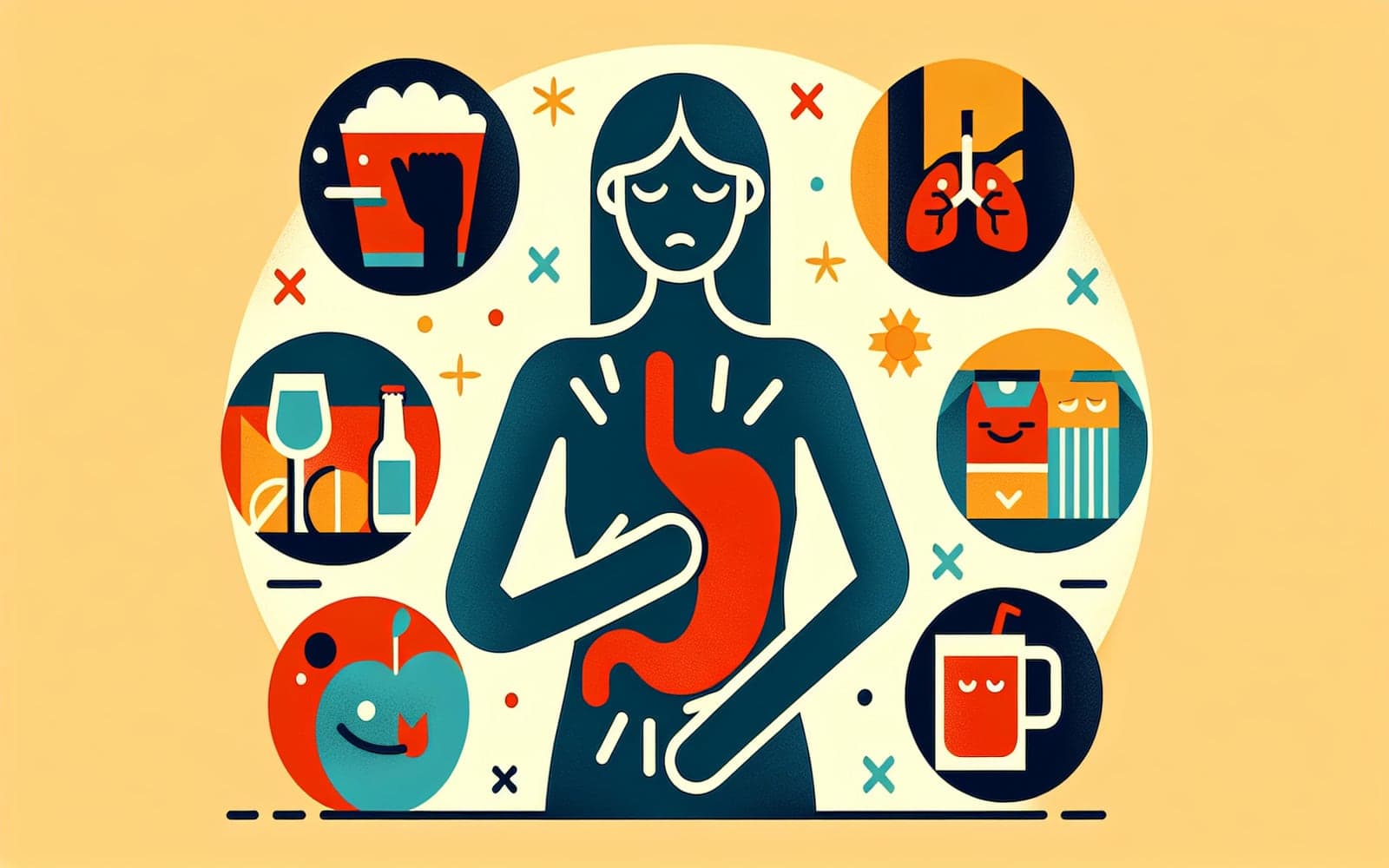Could Your Lifestyle Be Worsening Your Peptic Ulcers?
Published: Feb 11, 2024
Lifestyle choices and certain medications can significantly impact the healing of peptic ulcers. Learn about the key risk factors that could be keeping your ulcers from healing.
Contents
The Role of Medications
Nonsteroidal anti-inflammatory drugs (NSAIDs) are a major cause of refractory ulcers, as they can irritate the stomach lining. Even when taken in secret, NSAIDs can prevent ulcers from healing. Other drugs, including glucocorticoids and certain blood pressure medications, can compound this effect, leading to persistent ulcers.
Impact of Lifestyle Choices
Smoking is a significant risk factor that can prevent ulcers from healing, as it affects the blood supply to the stomach lining. Other lifestyle choices, such as alcohol consumption and poor diet, can also contribute to the problem. These factors can suppress the body's natural healing processes and exacerbate ulcer conditions.

Underlying Health Issues
Certain underlying health issues like respiratory failure or organ transplantation can impair healing. These conditions affect the body's ability to repair itself, leading to longer healing times for ulcers. Identifying and managing these conditions is crucial for promoting ulcer healing.
Frequently Asked Questions
Yes, NSAIDs can prevent ulcers from healing.
Smoking can impair the healing of ulcers.
Conditions like organ transplantation can affect healing.
Yes, poor diet can worsen ulcer conditions.
Key Takeaways
Lifestyle changes and careful management of medications can improve ulcer healing and prevent recurrence.
Consult with Doctronic to identify lifestyle changes that could help your ulcers heal faster.Related Articles
References
Kim HU. Clin Endosc 2015; 48:285.
Tseng CL, Chen YT, Huang CJ, et al. Aliment Pharmacol Ther 2015; 42:599.
Always discuss health information with your healthcare provider.

